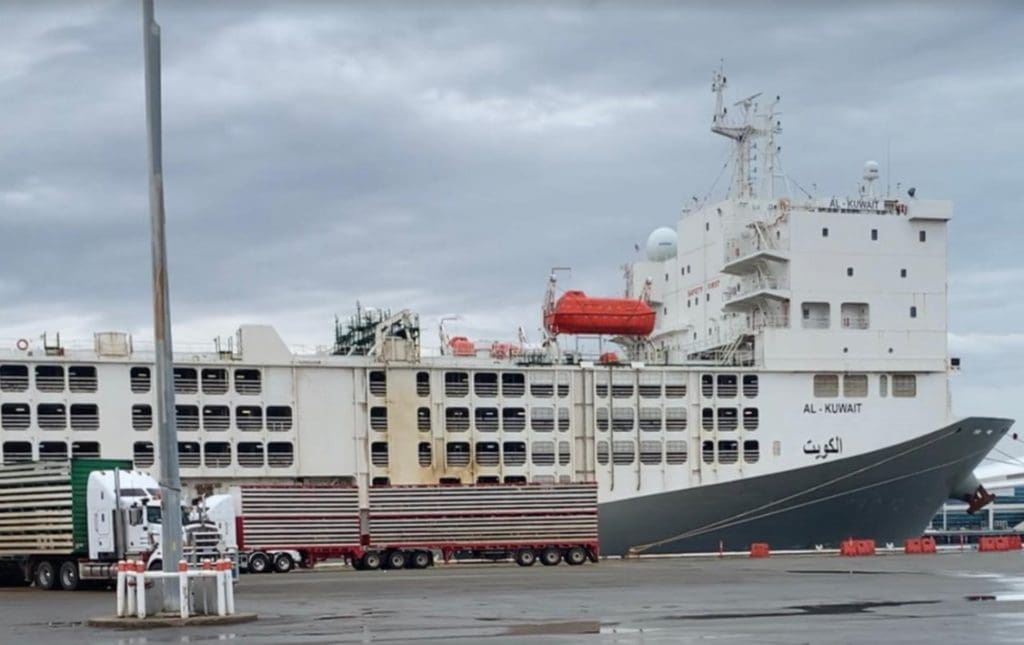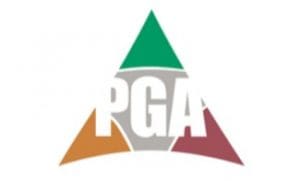
The MV Al Kuwait being loaded in an earlier shipment.
WESTERN Australian farmers and the RSPCA today faced off over a proposed export exemption for a shipment of sheep delayed by a COVID-19 outbreak on a vessel docked in Fremantle.
Rural Exports and Trading (WA) yesterday sought an exemption from Australia’s live export regulator to a moratorium on Middle East shipments due to start on 1 June and continue until mid-September.
Six crew members from the vessel, MV Al Kuwait, this week tested positive for COVID-19, which could mean the entire crew going into quarantine for two weeks. The vessel docked in Fremantle last Friday on its return from the Middle East.
About 56,000 sheep were due to be loaded on the vessel before June 1, but the COVID-19 outbreak has delayed its departure and the transferral of the sheep from a feedlot near Perth.
The exporter was today waiting on advice from the Department of Agriculture, Water and Environment on its exemption application before deciding whether the shipment could proceed with the Al Kuwait or another vessel. The Al Kuwait is operated by Kuwait Livestock Transport & Trading, the parent company of RETWA.
Western Australia’s two farmer bodies — WAFarmers and the Pastoralists and Graziers Association (WA) – have supported the shipment going ahead despite the moratorium deadline. However, the RSPCA today said it had written to Federal Agriculture Minister David Littleproud seeking his “urgent assurance” that the shipment would not go ahead.
Grant ‘minor’ exemption – PGA
 The PGA called on the Federal Government to support the “minor exemption” to the moratorium and allow the loading of the 56,000 sheep. The association said it is unlikely a replacement crew would be secured in time to meet the moratorium deadline.
The PGA called on the Federal Government to support the “minor exemption” to the moratorium and allow the loading of the 56,000 sheep. The association said it is unlikely a replacement crew would be secured in time to meet the moratorium deadline.
“This is an extraordinary situation that requires a sensible decision from the Federal Department of Agriculture to grant a minor exemption to allow the Al Kuwait to fly in a new crew and allow the sheep to be loaded as soon as possible,” PGA president Tony Seabrook said.
“Given the existing state COVID-19 restrictions, any new crew flying in could be possibly quarantined for another two weeks, which would mean that if an exemption to the moratorium is not granted, the sheep will not be loaded, creating an oversupply on the local market that will reduce livestock prices for farmers,” he said.
“This is a minor exemption for an exporter that has been caught in an extraordinary situation, and it needs to be granted as a matter of urgency.
“I call on Federal Agriculture Minister David Littleproud to show his support for this measure on behalf of Western Australian sheep producers.”
 WAFarmers livestock president David Slade said the live export industry was working tirelessly to resolve the issue, with RETWA and the Australian Livestock Exporters’ Association working closely with WA health authorities, and the state and federal departments.
WAFarmers livestock president David Slade said the live export industry was working tirelessly to resolve the issue, with RETWA and the Australian Livestock Exporters’ Association working closely with WA health authorities, and the state and federal departments.
“What is important is that industry, along with the state and federal departments, resolve this issue as quickly as possible for the benefit of the trade and all personnel involved.”
“The stock due for departure are being well cared for.
“They have access to ample feed and water with the livestock being held in the usual feedlot facilities,” he said.
“They are regularly monitored by livestock personnel including vets and stock handlers – this is normal practice.
“It’s our trading partners food security which is critical at this point in time, and the state and federal governments need to ensure they do everything they can to see this live export consignment through,” Mr Slade said.
RSPCA is gravely concerned about exemption
 RSPCA senior policy officer Dr Jed Goodfellow said the RSPCA was gravely concerned by reports the exporter is seeking exemption from the new live export regulations designed to protect Australian animals from the conditions, and which were enacted just two months ago.
RSPCA senior policy officer Dr Jed Goodfellow said the RSPCA was gravely concerned by reports the exporter is seeking exemption from the new live export regulations designed to protect Australian animals from the conditions, and which were enacted just two months ago.
“We understand this exporter – already notorious for their record on animal welfare – is seeking an exemption to send the sheep after the 1 June prohibited period, where the extreme heat and humidity would mean severe heat stress, suffering and death are all but guaranteed.
“This is the most dangerous time of the year for sheep exported to the Middle East, and the science and data show there’s nothing that can be done to mitigate these risks,” he said.
“There is clear and overwhelming evidence that sheep will suffer extreme heat stress if sent into Middle Eastern waters in June.
“That’s on the public record, and that’s why the government and Department of Agriculture put these new regulations in place,’ Dr Goodfellow said.
“Now, in the first season since those regulations were enacted, we’re already facing the threat of a live exporter seeking exemption from those rules, which risks completely undermining the new regulations and further damaging the broader industry’s reputation.”
The RSPCA said it also understood the exporter planned to fly a whole new crew from overseas into Australia to manage the animals and is concerned this may cause significant further delays, given Australia’s strict current border controls and quarantine measures.



HAVE YOUR SAY